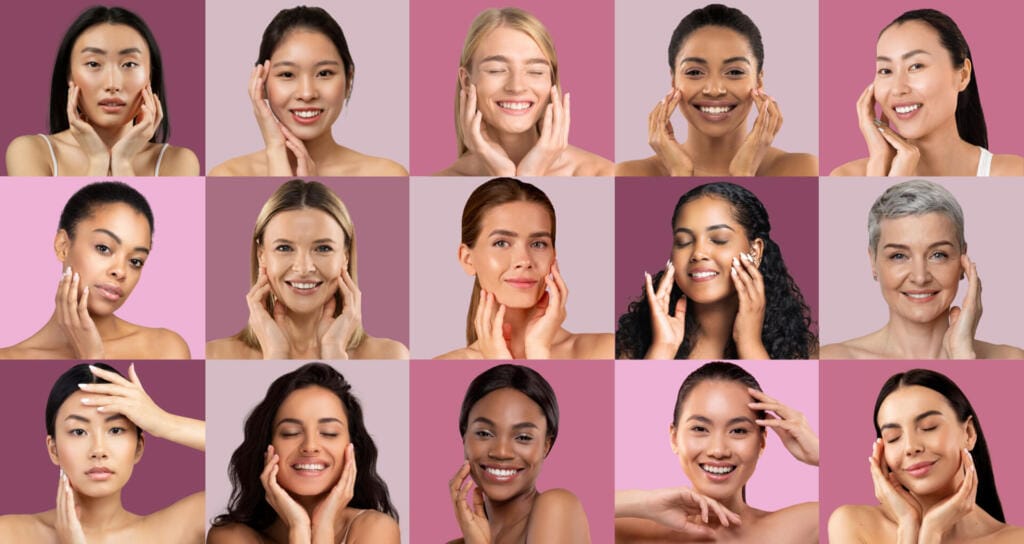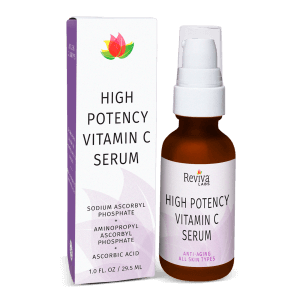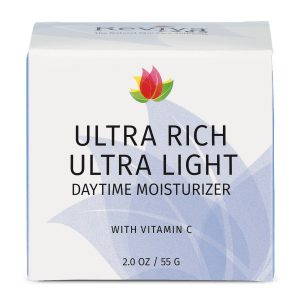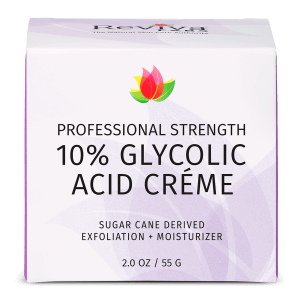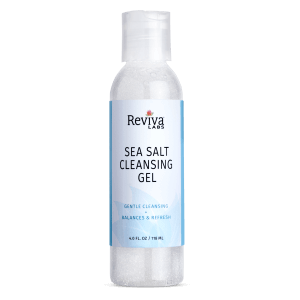Reviva Labs, Skin Care
When to Apply Skincare: Timing, Technique, and the Science Behind Perfect Skin
Our skin has a rhythm, just like everything else in our bodies. It’s constantly at work, renewing itself, protecting us from the outside world, and reflecting our age, lifestyle, and environment. But have you ever considered that when you apply your skincare products could be just as important as what you apply? A lot of us get into a routine, applying products at the same time every day, often without really thinking about how our skin might respond better at different times. Timing isn’t just a “nice-to-have” element of skincare; it’s critical. So, let’s get into the specifics of when to apply skincare for optimal results.
Skin responds differently at various times of the day. Studies show that during the day, our skin is in “protection mode,” defending against UV rays, pollution, and environmental stressors. At night, it switches to “repair mode,” focusing on cellular regeneration. According to the National Institute of Health (NIH), our skin’s natural circadian rhythms influence these processes, meaning our skin behaves differently depending on the time of day.
Why Timing Matters
Let’s start with why the timing of your skincare application matters. Every product you apply has an active ingredient designed to interact with your skin in a specific way. Antioxidants, for example, work to neutralize free radicals and prevent oxidative damage. Retinoids, on the other hand, boost collagen production and accelerate skin cell turnover. Applying these products at times when they can be most effective—when your skin is most receptive—is essential.
The skin is thicker in the morning and generally better equipped to fend off external aggressors. By evening, it’s often fatigued from exposure to the environment, and your body focuses on renewal and recovery overnight. So, aligning your products with these natural cycles means they’re more likely to work in harmony with your skin, resulting in better outcomes over time.
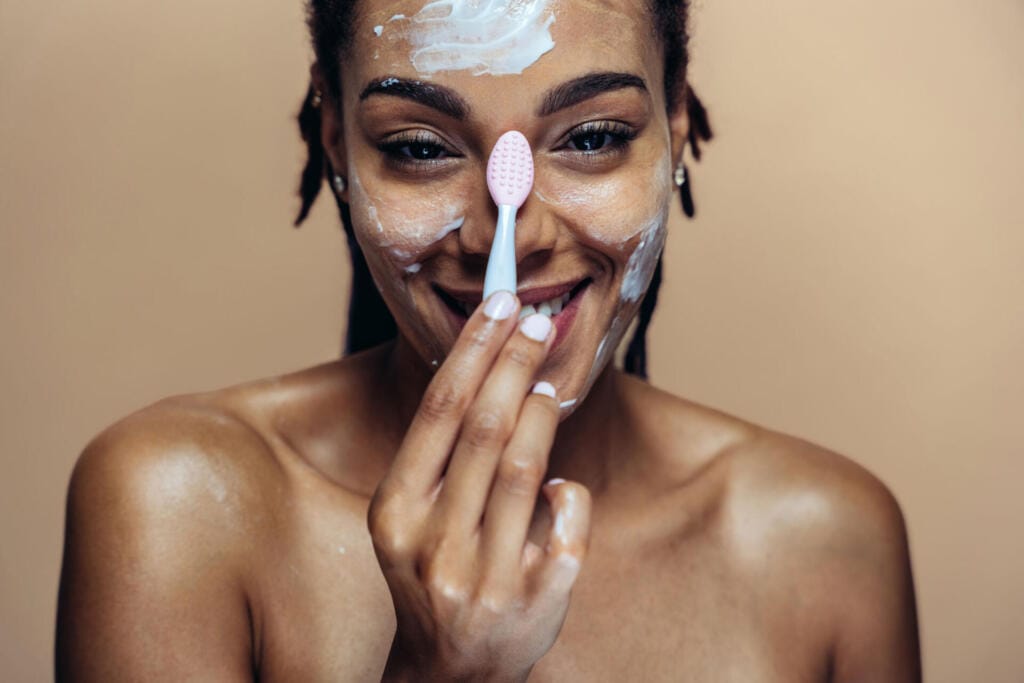
Morning Skincare: A Protective Approach
Morning skincare is all about defense. Your skin is about to face the day, which means exposure to UV rays, pollution, dirt, and other environmental aggressors. Here’s how a morning routine could look:
- Cleansing: Start with a gentle cleanser to remove oils and impurities that accumulate overnight. This step is essential but should be mild enough to avoid stripping the skin’s natural moisture barrier.
- Antioxidants: After cleansing, apply a serum rich in antioxidants. Vitamins C and E, niacinamide, and ferulic acid are powerful agents that help shield your skin from damage throughout the day.
- Moisturizer: Your skin will need a lightweight moisturizer in the morning to keep it hydrated but not greasy. Look for ingredients like hyaluronic acid, which helps attract moisture to the skin without feeling heavy.
- Sunscreen: Dermatologists often say sunscreen is the best anti-aging product because it protects against UV rays, which are the leading cause of premature skin aging. SPF is non-negotiable—even on cloudy days or when you’re inside, as UV rays can penetrate windows.
A study published in the Journal of Dermatological Science found that 80% of visible aging is due to UV exposure, not intrinsic aging. With a proper SPF in your morning routine, you’re preventing a significant amount of daily skin damage that accumulates over time.
Afternoon Skincare: A Refresh, not a Full Routine
Afternoon skincare often goes overlooked, but midday can be a great time to give your skin a boost. This doesn’t mean doing your full morning routine again, but a little maintenance can go a long way. Think of this as a quick refresh.
- Hydrating Mist or Toner: A spritz of a hydrating mist, especially one with ingredients like rose water or aloe vera, can replenish moisture lost due to the environment or the drying effects of air conditioning.
- Reapplication of Sunscreen: The effectiveness of sunscreen decreases over time, so reapplying around midday is essential. Even if your makeup has SPF, applying an additional layer of mineral-based sunscreen powder or mist ensures your protection remains intact.
Evening Skincare: Repair and Rejuvenate
The evening is when your skin is ready to repair itself from the day’s wear and tear. Studies suggest that the regeneration process peaks around midnight, which makes bedtime skincare a crucial step for addressing specific skin concerns like hyperpigmentation, fine lines, and dehydration.
- Double Cleansing: Start with an oil-based cleanser to break down makeup and sunscreen, followed by a gentle foaming cleanser to remove any remaining impurities. This is particularly beneficial if you’ve been in an urban environment with a lot of pollution.
- Exfoliation: Exfoliating two to three times a week, depending on your skin type, is ideal. Chemical exfoliants like alpha hydroxy acids (AHAs) and beta hydroxy acids (BHAs) can dissolve dead skin cells and promote skin renewal.
- Treatment Serums: This is when you can apply retinoids or retinol, peptides, or other treatment serums that work to repair the skin. These ingredients can make skin more sensitive to sunlight, which is why nighttime application is best. Retinoids, for example, work best overnight because they increase cell turnover, making your skin more vulnerable to the sun.
- Moisturizer: Night creams are generally richer than daytime moisturizers, focusing on deep hydration and recovery. Ingredients like ceramides and peptides support your skin’s structure and help with overnight repair.
How Age Impacts Skincare Timing
Skin changes as we age. Younger skin renews itself every 28 days, but as we grow older, this process slows down, meaning the timing of skincare becomes even more critical. For mature skin, targeting hydration and cell renewal during the evening hours is particularly beneficial. Ingredients like hyaluronic acid, peptides, and collagen-boosting agents help compensate for the gradual reduction in collagen production and hydration levels as skin ages.
For younger skin, daytime protection against UV rays and pollutants remains a priority, but evening skincare routines should focus more on hydration than on potent active ingredients, which might not be as necessary early on.
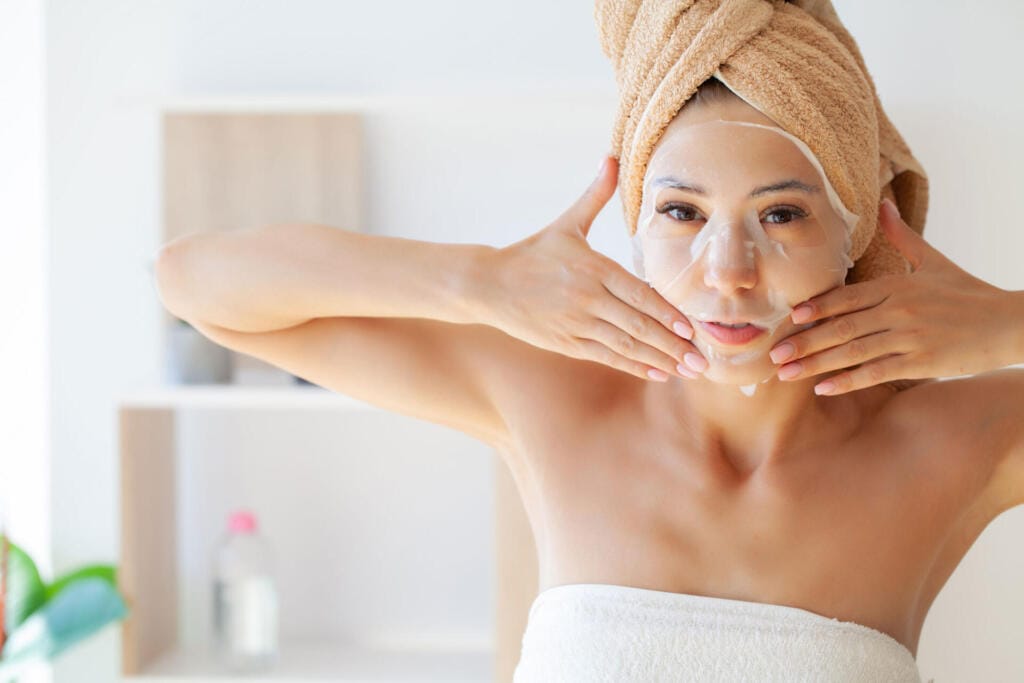
The Science of Circadian Rhythms and Skin Health
The skin’s circadian rhythm, or “biological clock,” impacts how skin cells function throughout the day. Research indicates that skin barrier functions are more effective during the day, while skin cells tend to regenerate at night. Understanding these cycles means we can apply products at the most beneficial times, aligning with the body’s natural processes.
A study published by the American Academy of Dermatology shows that skin cell proliferation, a crucial factor for cell renewal, peaks at night. So, applying treatment-focused products, like retinoids or growth factors, at night supports these natural rhythms, helping skin rejuvenate more effectively.
Skincare Timing Tips for Different Skin Types
- Oily Skin: Those with oily skin should focus on gentle cleansing, especially in the morning and evening, to avoid clogged pores. Apply a lightweight moisturizer and opt for oil-free SPF during the day.
- Dry Skin: Hydration is essential, and people with dry skin may benefit from applying a hydrating serum and moisturizer both morning and night. Look for night creams with occlusive agents that lock in moisture.
- Combination Skin: For combination skin, the “multi-moisturizer” approach—using a lightweight product on oily areas and a richer product on dry areas—may work well. Also, remember to target treatments to specific zones rather than applying all products everywhere.
Final Thoughts on Skincare Timing
Skincare timing is a powerful tool for maximizing the effectiveness of products and achieving healthier, radiant skin. By respecting our skin’s natural rhythms and applying products when they’ll be most effective, we’re working with, not against, our skin’s unique needs. Understanding that skincare is a combination of routine, timing, and personalized care brings us closer to achieving our skin goals. When we think of skincare as more than just a task but as part of our lifestyle, it’s not just our skin that benefits—it’s our well-being too.



